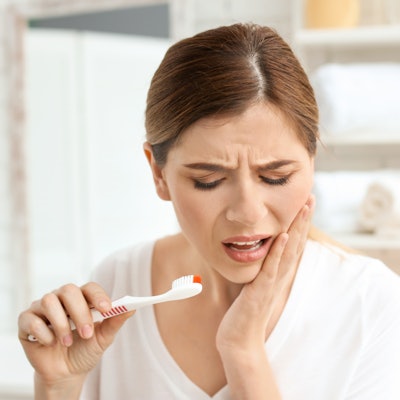
Dentists are seeing an increase in patients experiencing dental conditions associated with stress, such as teeth grinding, cracked teeth, and temporomandibular joint disorder (TMD) symptoms, according to new poll data released by the ADA on March 2.
The ADA has surveyed dentists throughout the COVID-19 pandemic, helping to gauge how pandemic-related stress has affected oral health. The results show that stress-related dental conditions have continued to increase throughout the pandemic, noted Marko Vujicic, PhD, chief economist and vice president of the Health Policy Institute.
 Marko Vujicic, PhD. Image courtesy of the ADA.
Marko Vujicic, PhD. Image courtesy of the ADA."Our polling has served as a barometer for pandemic stress affecting patients and communities seen through the eyes of dentists," Vujicic stated in an ADA press release. "The increase over time suggests stress-related conditions have become substantially more prevalent since the onset of COVID-19."
The latest results, which come from a poll taken the week of February 15, show that more than 70% of dentists report seeing teeth grinding and clenching. In the fall, 60% of dentists reported seeing an increase in these two stress-related behaviors.
Grinding and clenching weren't the only stress-related dental conditions to increase over the winter holidays as COVID-19 cases and deaths spiked throughout the U.S. The new poll also found a little more than 60% of dentists saw an increase in chipped and cracked teeth and TMD symptoms, such as jaw pain and headaches.
Dentists aren't seeing a jump in all types of dental conditions, however. They reported no meaningful change in complaints about bad breath or dry mouth compared to before the pandemic started.
"As the pandemic continues, dentists are seeing stress-related dental conditions more and more," stated Dr. Marcelo Araujo, PhD, chief science officer of the ADA. "It's more important than ever for people to maintain their dental health, including seeing the dentist regularly to address any issues that could have long-term impact."



















